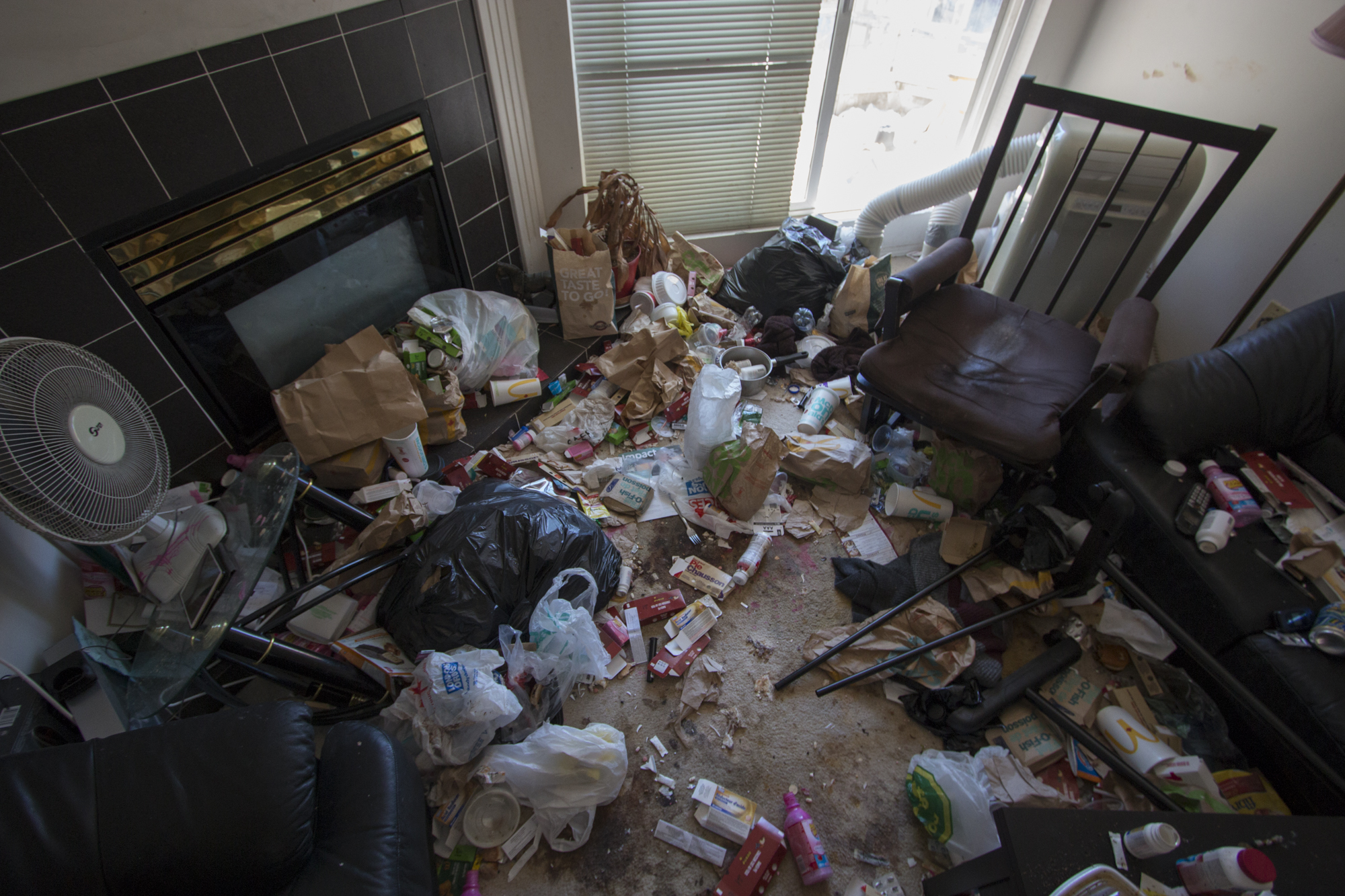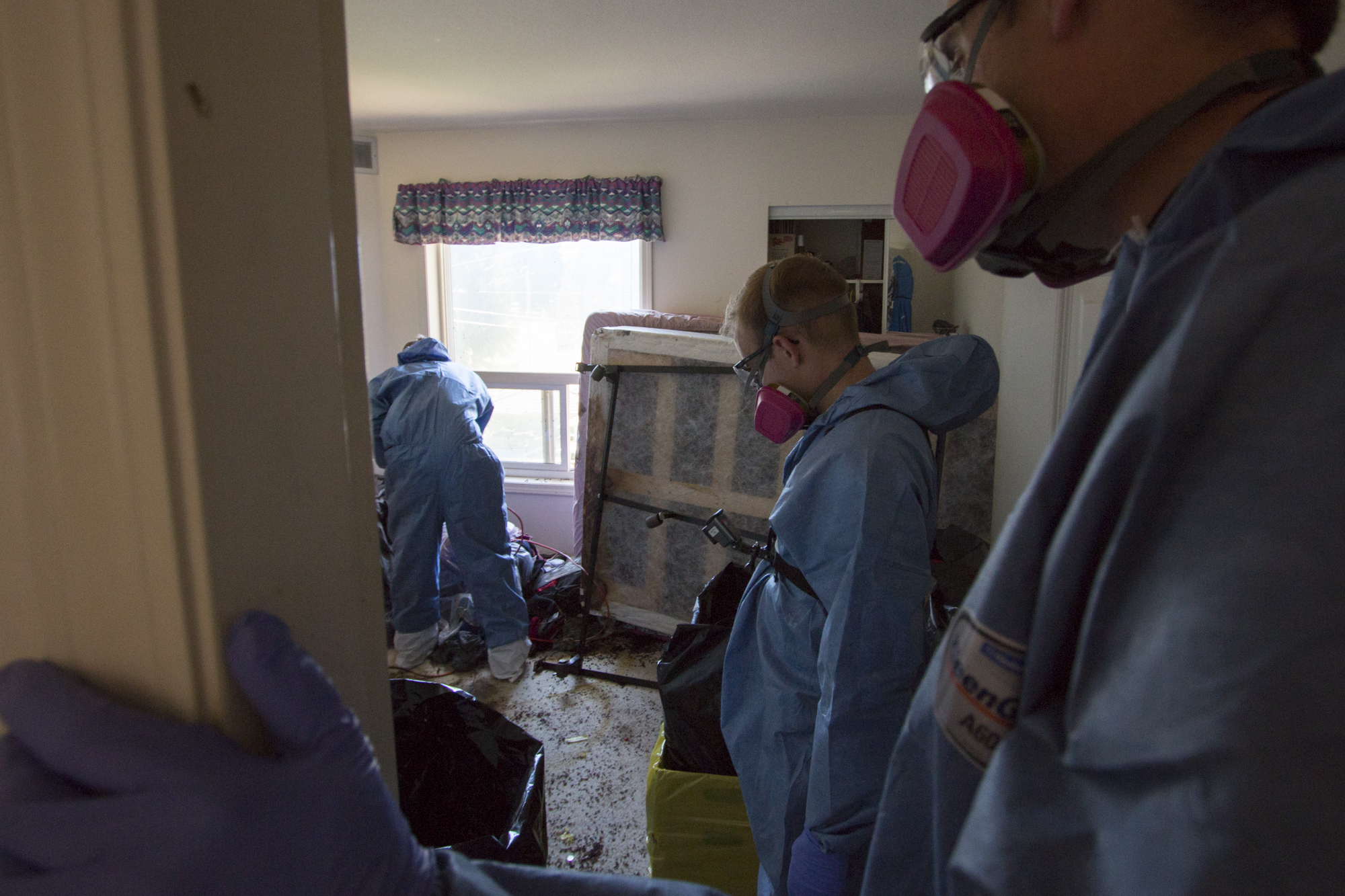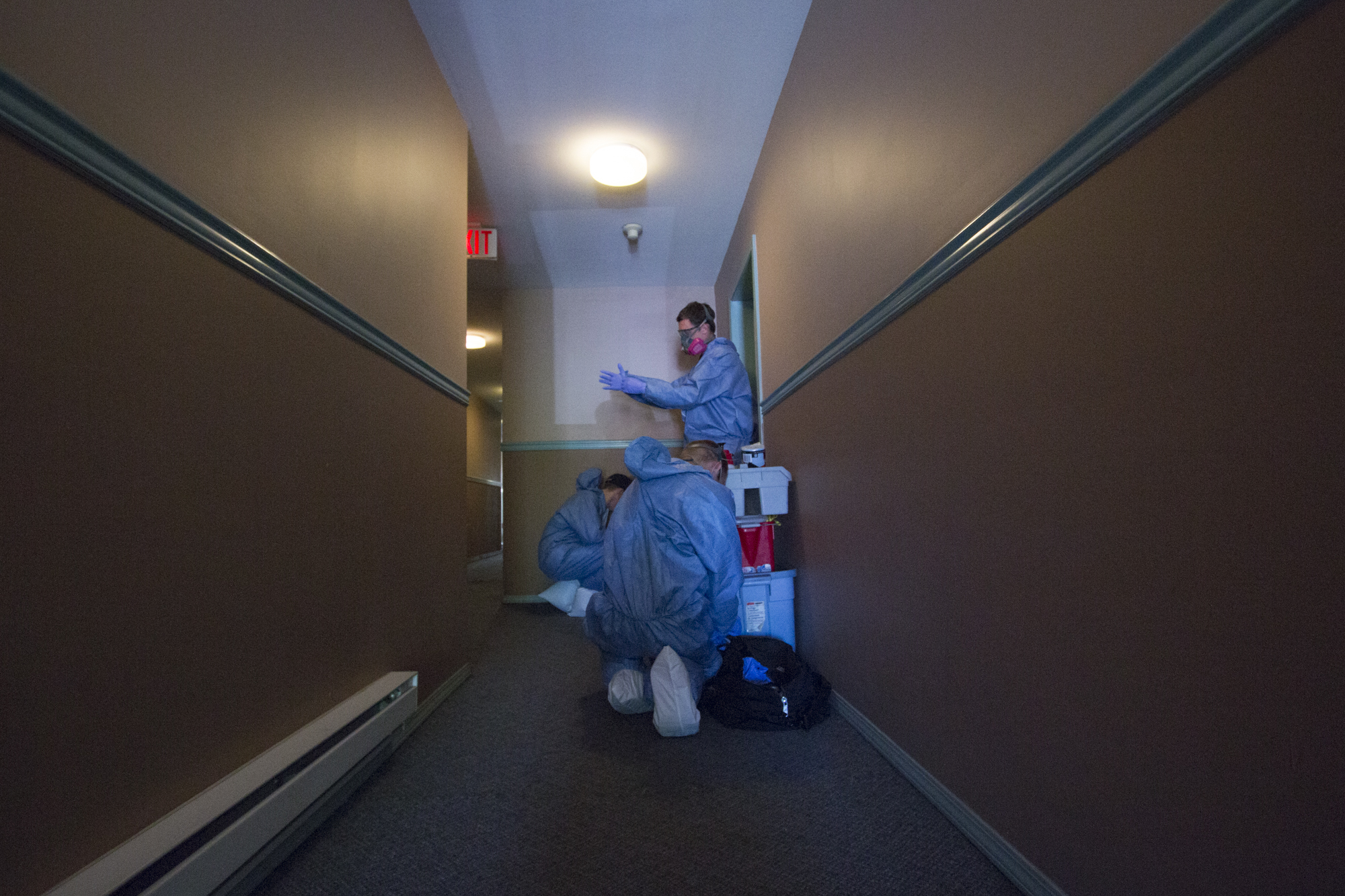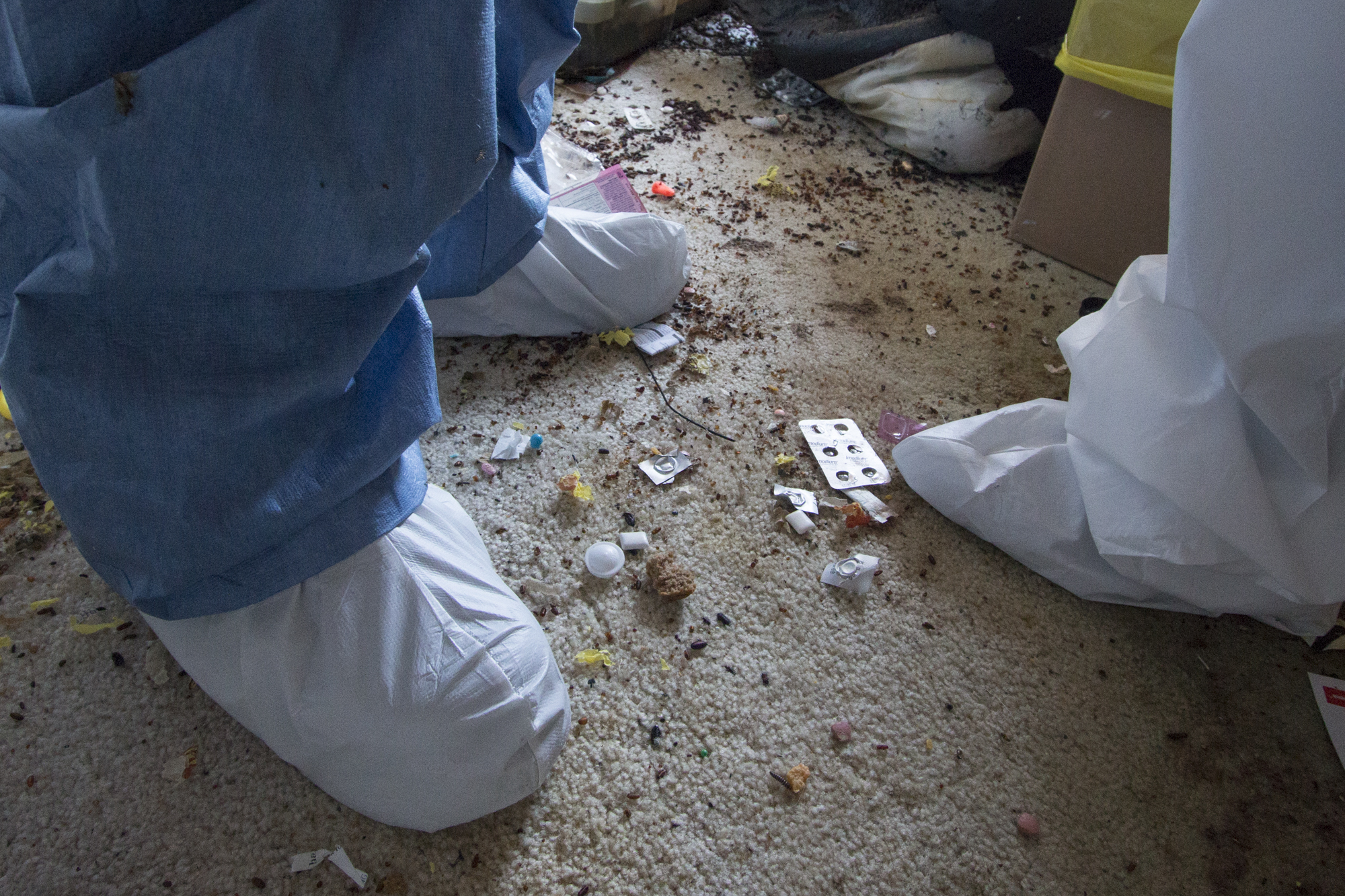July 15, 2018
Curtis Kreklau stands in the middle of a one-bedroom East Vancouver apartment packed with half-empty takeout containers, empty pill bottles and broken furniture.
And then there’s the smell.
If Kreklau were to remove his respirator, the odour would resemble a potent version of a farmer’s field recently laid with manure. The source is in the bedroom, where a decomposing body was found weeks after the person died.
Nearby, a small container of mouldy McDonald’s fries lies at the edge of the hallway. Photos of smiling family members hang on the wall and sit on the mantel.

The person who lived here died alone. The B.C. Coroners Service says last year there were 2,424 sudden or unexpected or sudden deaths in private residences throughout the province.
Kreklau says, in many cases he deals with, the person likely suffered from a mental illness that kept them from being able to care for themselves properly. He and his team are there to assess and repair the damage left behind.
“It’s shocking at first when you get into the line of work but it doesn't take too long to figure out whether you’re the type of personality that’s going to be able to deal with it day to day,” Kreklau says.
"It’s certainly not for everyone."
Kreklau, 31, is the operations manager for 1st Trauma Scene Clean Up — one of a handful of companies in Metro Vancouver that specializes in remediating crime scenes, unattended deaths and industrial accidents. He leads a team of about 10 bioremediation technicians.

Over the next two weeks, Kreklau and two technicians will remove all the garbage that has piled up in the apartment. They’ll take apart furniture that has been contaminated with bodily fluids, rip out the carpets and disinfect the entire home to make it habitable again.
These are the people who do what no one else wants to. But their jobs are crucial in a city where death and trauma are a regular occurrence. Despite the hazards, Kreklau is committed to his work.
“We get to meet a lot of really nice people and we get to make a difference in their life,” he says of the family and friends of the deceased.
“Something that’s going to be overwhelming and unmanageable for them — we can make a dirty situation new again.”
Kreklau started his job about five years ago, after his work as a 911 dispatcher for a fire department came to an end. The company’s owner, Brian Woronuik, works as a firefighter and recruits a lot of his staff through word of mouth.
“It’s not really the kind of job you can put out an ad for,” Kreklau says.
Suicides, homicides and unattended deaths are some of the most common situations Kreklau and his co-workers deal with. Hoarding scenarios are frequent enough to make up a separate division.
In this case a family member hired the company. Other times it’s a property manager or social housing agency. The company’s fees vary broadly but it can charge up to $10,000. The cost depends on the level of structural damage caused when fluids seep from a dead person.
The fluids may carry infectious diseases. They’re considered toxic and have to be wiped clean and disinfected to make the home habitable again.

Technicians must also remove piles of garbage and other materials that have come into contact with bodily fluids or, in this case, some of the feces that trail across the beige carpet. This contaminated material will then be sealed and shipped to a medical waste facility for disposal.
“We just have to go layer by layer and step by step. We can’t get too far ahead of ourselves because we really don’t know what’s happening underneath something until we remove it,” he said.
“Sometimes it can be more of like an iceberg where it’s small on the surface, but as we go down it it gets bigger and more spread out.”
Kreklau says he’s dealt with situations where apartments one or even two floors below have had to be remediated — drywall ripped out, joists rebuilt and carpets replaced.

As a supervisor, Kreklau says he earns about $28 per hour. Technicians make between $18 and $25, depending on their experience.
It’s decent pay considering there’s no formal education required, he says. The company trains its own staff and occasionally sends them to the U.S. for additional courses with the American Bio Recovery Association.
The company teaches its staff how to keep themselves safe and avoid exposing themselves to any of the contaminated waste. To do their jobs they have to wear booties, full Tyvek suits, respirators, protective glasses and gloves.
As for the mental preparation, Kreklau says the job was shocking at first but now he’s simply methodical about his approach.
“Once you get into work mode, you just get into objectivity and you don’t really react to the grossness of it all,” he says.
“There’s definitely days where I’m not having the best day or I’m not enjoying it. But I think that goes really for any job.”

